wilting squash leaves
Related Stories
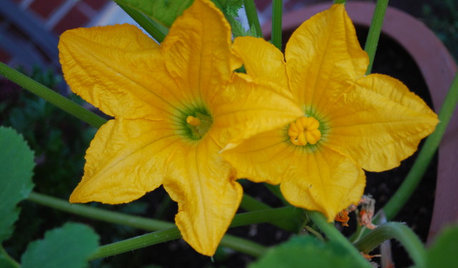
EDIBLE GARDENSSummer Crops: How to Grow Squash
Almost foolproof and with cheerful flowers, squash comes in a wide range of varieties to plant in spring
Full Story
FALL GARDENING5 Ways to Put Fall Leaves to Work in Your Garden
Improve your soil and yard the organic way with a valuable garden booster that grows on trees
Full Story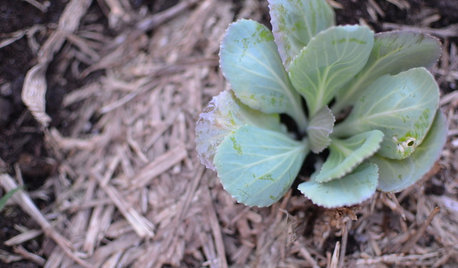
REGIONAL GARDEN GUIDESMid-Atlantic Gardener's September Checklist
Squash, anyone? Cool-season veggies are suiting up for the garden, while summer's last blooms are winding down
Full Story
GARDENING AND LANDSCAPING9 Whimsical Touches to Wake Up the Garden
If the August heat is wilting your enthusiasm, try these playful ideas to jump-start your gardening moxie
Full Story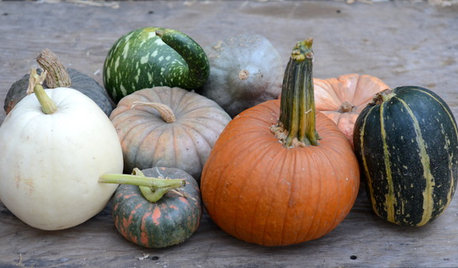
GARDENING GUIDESJoin Us for a Parade of Pumpkins
Fall eye candy: Get to know 9 winter squash varieties, including Long Island Cheese and Blue Hubbard
Full Story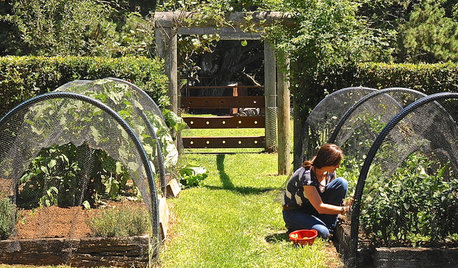
FARM YOUR YARDHouzz Call: Home Farmers, Show Us Your Edible Gardens
We want to see where your tomatoes, summer squashes and beautiful berries are growing this summer
Full Story
FALL GARDENING11 Trees for Brilliant Fall Color
Give your landscape the quintessential look of autumn with the red, orange and yellow leaves of these standouts
Full Story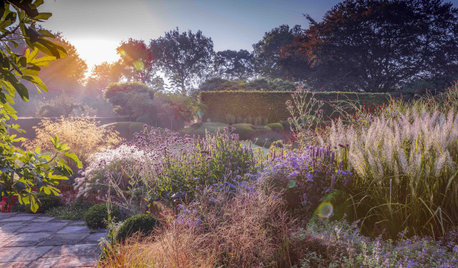
GARDENING GUIDESGot Frost-Damaged Plants? How It Happens, and When and How to Prune
Crispy brown leaves are a sure sign that Jack Frost has been to your neighborhood
Full Story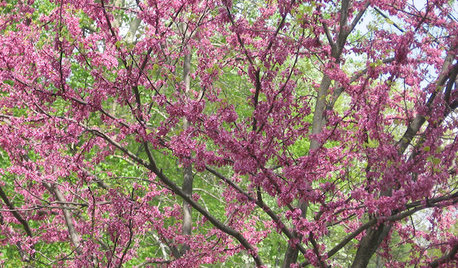
GARDENING GUIDESGreat Design Plant: Eastern Redbud
With romantic pink blooms and heart-shape leaves, this ornamental tree has been inspiring affection since the days of the founding fathers
Full Story
Easy Ways to Dress Up Your Home for Fall
Give your interior a warm autumn feeling with branches, leaves and a burst of orange
Full Story






bostedo: 8a tx-bp-dfw
daninthedirt (USDA 9a, HZ9, CentTX, Sunset z30, Cfa)Original Author
Related Professionals
Vernon Hills Landscape Architects & Landscape Designers · Elgin Landscape Contractors · Stamford Landscape Contractors · Americus Landscape Contractors · Emmaus Landscape Contractors · Fairfield Landscape Contractors · Lakewood Landscape Contractors · Oviedo Landscape Contractors · Suitland Landscape Contractors · Hawaiian Gardens Landscape Contractors · Brighton Window Contractors · Alexandria Window Contractors · Crestwood Window Contractors · Poinciana Window Contractors · Sarasota Window Contractorsrobyn_tx
daninthedirt (USDA 9a, HZ9, CentTX, Sunset z30, Cfa)Original Author
robyn_tx
daninthedirt (USDA 9a, HZ9, CentTX, Sunset z30, Cfa)Original Author